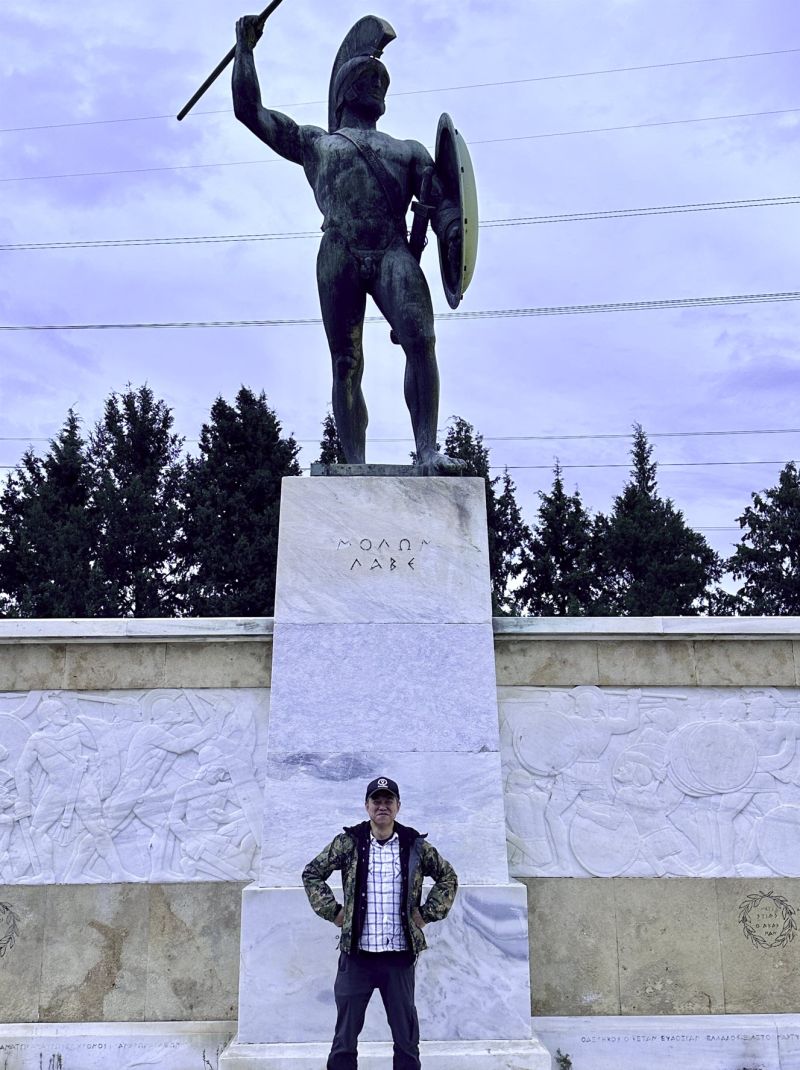Debunking Myths: The Reality of The Battle of Thermopylae
by
Jeremy Tang - Updated
24-Jan-2024

I am standing in the place where King Leonidas of Sparta made his last stand in the battle that immortalised him and his 300 Spartans but ignored 95.8% of his loyal troops who deserve recognition.
It all happened at the Battle of Thermopylae, fought in 480 BC, a significant conflict during the Greco-Persian Wars. It took place in a narrow coastal pass in Greece named Thermopylae (‘Hot Gates’). This battle is renowned for the heroic stand of a small Greek force led by King Leonidas of Sparta against a vastly larger Persian army commanded by King Xerxes.
The popular narrative around this battle was of a band of 300 Spartans taking on several hundred thousand enemies. The reality was that there was 7,100 of them that participated from all parts of Greece. Even when they made their last stand on the third day of the conflict and a large portion of this initial group were ordered to retreat and regroup, there were still between 1,500 to 3,000 left, not 300 that stayed, knowing that they all faced certain death.
This contrast between popular tales and facts underscores a critical issue in today’s information age: the need to look beyond catchy soundbites and understand the full context. Such oversimplification, often seen in short-form media like tweets and TikToks, has real-world impacts, including in the professional sphere. For example, at Area Ten, we’ve seen a worrying trend where failure rates on our analytical reasoning test for job candidates have jumped from 78% to 96% over five years across a comparable cohort. This suggests a shift in how people process information, with a decline in deep analytical thinking and attention to detail – skills not nurtured by the rapid consumption of short-form content.
This situation at Area Ten reflects a broader challenge. As the world increasingly values quick information, the ability to engage with complexity is becoming more critical yet more rare. This gap affects individual abilities and has wider implications for workforce readiness and decision-making quality.
Therefore, it’s essential for both individuals and organizations to foster deeper analytical skills. This involves reevaluating our media engagement, emphasizing critical thinking in education and training, and creating environments that encourage looking beyond the superficial. Like the true story of Thermopylae, our approach to information should embrace thoroughness and critical analysis, recognizing the complexities behind simplified narratives.